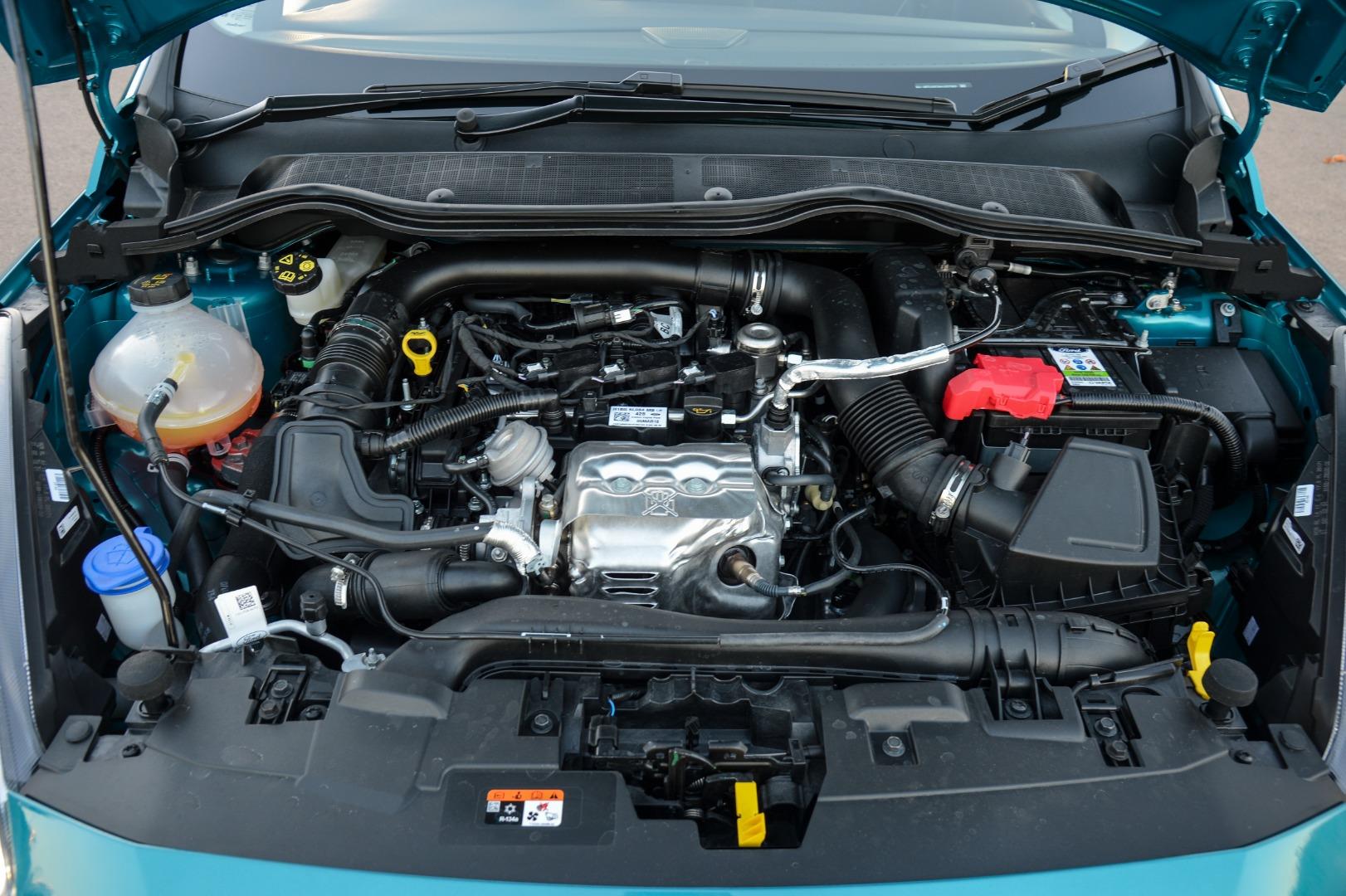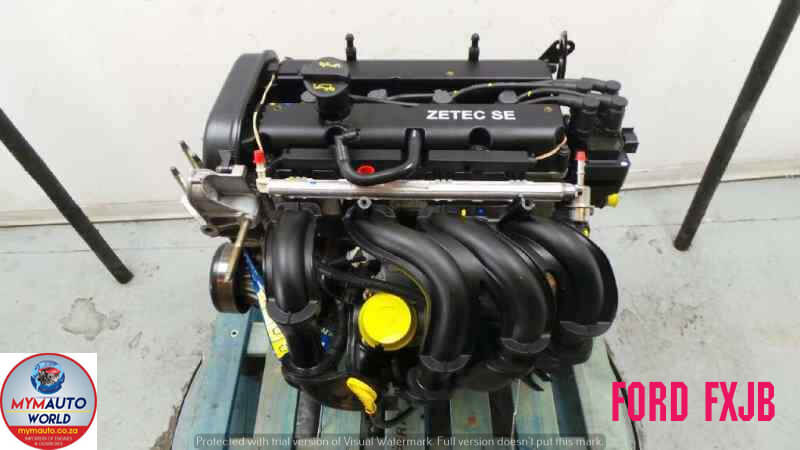Upgrade Your Ford Fiesta Engine for Better Fuel Economy and Power
Upgrade Your Ford Fiesta Engine for Better Fuel Economy and Power
Blog Article
The Future of Engines: Innovations Driving Sustainable Power Solutions
As the automobile industry browses the critical transition towards sustainability, the future of engines is increasingly specified by groundbreaking innovations. Electric engine developments, along with appealing advancements in hydrogen gas cells and biofuels, are improving the landscape of power options. The emergence of hybrid systems even more complicates this development, presenting both obstacles and possibilities to reduce exhausts successfully. Coupled with the integration of artificial knowledge in engine style, these technical strides raise vital questions concerning their long-term stability and influence on traditional standards. What might this indicate for the market and customers alike?
Electric Engine Advancement
The development of electrical engine growths indicates a pivotal change in the aerospace and automotive sectors, driven by the immediate demand for sustainable choices to fossil gas. This change is identified by significant innovations in battery modern technology, power electronic devices, and electric motor design, which jointly enhance the efficiency and efficiency of electric engines.
Current developments have led to the creation of lighter, more energy-dense batteries, such as lithium-silicon and solid-state batteries, which guarantee longer arrays and shorter charging times. In addition, renovations in electric motor effectiveness, such as making use of long-term magnets and progressed cooling systems, enable electrical engines to operate efficiently under differing problems. These enhancements not just boost car performance but likewise add to a reduction in general power intake.
Furthermore, the assimilation of sophisticated software algorithms has actually enhanced power management in electrical lorries, permitting regenerative braking and anticipating charging approaches. As manufacturers progressively welcome electric propulsion, the aerospace and vehicle markets are observing a standard change in the direction of greener technologies. This development not only meets regulatory demands but additionally straightens with consumer preferences for ecologically pleasant transport services, solidifying electrical engines as a keystone of future lasting flexibility.
Innovations in Biofuels
As the auto and aerospace sectors progressively prioritize lasting power sources, advancements in biofuels arise as a complementary service to electric engines. Biofuels, derived from organic products such as plants, waste, and algae, present a cutting-edge avenue for decreasing greenhouse gas exhausts and reliance on fossil fuels.
Current research has actually concentrated on enhancing the efficiency and sustainability of biofuel manufacturing. Second-generation biofuels make use of non-food feedstocks, lessening competition with food supply and decreasing ecological effect. Furthermore, innovations in artificial biology have actually enabled the design of bacteria to create biofuels more properly, causing higher yields and reduced manufacturing costs.
In addition, the development of drop-in biofuels enables seamless integration into existing infrastructure, allowing a smoother transition for markets commonly based on fossil gas. ford fiesta engine. These gas can be utilized in present engines without adjustments, promoting their fostering across numerous markets
Investments in biofuel modern technology, together with encouraging policies, are important to drive technology and scalability. As the global neighborhood looks for to combat climate modification, biofuels use a pragmatic, instant option that straightens with the overarching goal of sustainability in transportation and aviation.
Hydrogen Fuel Cell Innovation
An expanding number of business and researchers are exploring hydrogen gas cell innovation as a practical option to traditional power sources in transportation and energy systems. This innovation transforms chemical power from hydrogen into electrical energy with an electrochemical reaction, with water as the only result, making it an eco-friendly choice.
The core of hydrogen have a peek here gas cells is the gas cell pile, where hydrogen particles are divided into protons and electrons. The circulation of electrons generates electricity, while protons relocate through a membrane layer to integrate with oxygen from the air, creating water. This process leads to high efficiency and low exhausts, positioning hydrogen gas cells as a critical gamer in the transition to lasting power.
Substantial developments have been made in boosting the resilience and performance of fuel cells, together with lowering prices via ingenious manufacturing strategies. Furthermore, the development of hydrogen production techniques, such as electrolysis powered by eco-friendly energy resources, boosts the sustainability of the overall system. As framework for hydrogen refueling expands and production methods come to be more effective, hydrogen fuel cell technology holds wonderful guarantee for decarbonizing numerous markets, consisting of durable transport and fixed power generation.
Hybrid Systems and Their Influence
Crossbreed systems represent a significant evolution in sustainable engine technology, combining typical interior burning engines with electrical propulsion to maximize energy performance and decrease exhausts (ford fiesta engine). This twin technique allows automobiles to use both power sources, making it possible for greater flexibility in power intake and lowering reliance on nonrenewable fuel sources

Along with ecological advantages, hybrid systems use customers a practical transition towards totally electrical cars. They reduce array anxiety by incorporating the benefit of gas with the advantages of electric propulsion, making them an eye-catching option for a wider target market. As manufacturers purchase hybrid innovation, the development of advanced battery systems and lightweight materials remains to boost performance. On the whole, hybrid systems stand for a crucial action in the direction of achieving lasting transport and resolving the immediate need for ecologically pleasant power services.
The Role of AI in Engine Design
Leveraging innovative algorithms and equipment knowing methods, the auto market is progressively incorporating expert system (AI) into engine style processes. AI improves the performance and efficiency of style by this content evaluating vast datasets to identify ideal configurations and efficiency parameters. This capability permits designers to imitate different operating problems and forecast engine habits under numerous situations, considerably lowering the moment and expense connected with standard prototyping methods.
In addition, AI facilitates the advancement of sophisticated materials and combustion processes customized for sustainability. By optimizing fuel effectiveness and decreasing emissions, AI-driven layouts align with worldwide initiatives targeted at minimizing the carbon impact of automobile engines. Equipment learning algorithms can additionally anticipate maintenance requirements, leading to enhanced integrity and long life of engine parts.
Additionally, AI is crucial in the assimilation of electrification modern technologies, such as crossbreed systems, where it can enhance battery management and energy recovery procedures. As the market relocates in the direction of even more lasting power options, the function of AI in engine style ends up being increasingly crucial, driving innovation and enhancing the performance of future engines. Ultimately, the collaboration between AI and engine style proclaims a brand-new period of smarter, cleaner, and extra reliable auto modern technologies.

Conclusion
In conclusion, the future of engines is being formed by a merging of cutting-edge innovations that focus on sustainability. Electric engine improvements, biofuel advancements, hydrogen gas cells, and crossbreed systems jointly contribute to a significant reduction in discharges and ecological impact.
Electric engine innovations, along with encouraging growths in hydrogen gas cells and biofuels, are reshaping the landscape of power solutions. In addition, renovations in electrical motor performance, such as the usage of long-term magnets and advanced cooling systems, enable electrical engines to run properly under differing conditions. By optimizing gas performance and lessening exhausts, AI-driven designs align with worldwide campaigns aimed at reducing the carbon impact of auto engines. As the sector moves towards even more sustainable power remedies, the role of AI in engine layout becomes increasingly crucial, driving technology and enhancing the efficiency of future engines. Electric engine innovations, biofuel growths, hydrogen gas cells, check out here and crossbreed systems jointly contribute to a significant decrease in exhausts and ecological effect.
Report this page